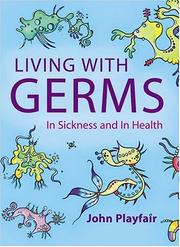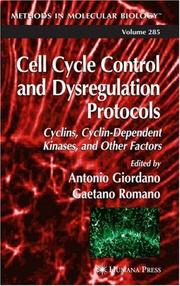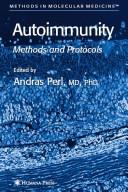| Listing 1 - 10 of 205 | << page >> |
Sort by
|
Periodical
Year: 2004 Publisher: Rajshari, Bangladesh : Institute of Biological Sciences, Rajshahi University
Abstract | Keywords | Export | Availability | Bookmark
 Loading...
Loading...Choose an application
- Reference Manager
- EndNote
- RefWorks (Direct export to RefWorks)
Life sciences --- Life sciences --- Life sciences. --- Bangladesh.
Periodical
Year: 2004 Publisher: Rajshari, Bangladesh : Institute of Biological Sciences, Rajshahi University
Abstract | Keywords | Export | Availability | Bookmark
 Loading...
Loading...Choose an application
- Reference Manager
- EndNote
- RefWorks (Direct export to RefWorks)
Life sciences --- Life sciences --- Life sciences. --- Bangladesh.
Periodical
Year: 2004 Publisher: [Faisalābād, Pakistan] : ISISnet,
Abstract | Keywords | Export | Availability | Bookmark
 Loading...
Loading...Choose an application
- Reference Manager
- EndNote
- RefWorks (Direct export to RefWorks)
Periodical
Year: 2004 Publisher: [Faisalābād, Pakistan] : ISISnet,
Abstract | Keywords | Export | Availability | Bookmark
 Loading...
Loading...Choose an application
- Reference Manager
- EndNote
- RefWorks (Direct export to RefWorks)
Periodical
Abstract | Keywords | Export | Availability | Bookmark
 Loading...
Loading...Choose an application
- Reference Manager
- EndNote
- RefWorks (Direct export to RefWorks)
Life Sciences --- Entomology --- Zoology
Periodical
Year: 2004 Publisher: Rajshari, Bangladesh : Institute of Biological Sciences, Rajshahi University
Abstract | Keywords | Export | Availability | Bookmark
 Loading...
Loading...Choose an application
- Reference Manager
- EndNote
- RefWorks (Direct export to RefWorks)
Multi
ISSN: 05777496 16726650 Year: 2004 Publisher: Beijing Science Press
Abstract | Keywords | Export | Availability | Bookmark
 Loading...
Loading...Choose an application
- Reference Manager
- EndNote
- RefWorks (Direct export to RefWorks)
1 vol. (12 issues) / year
Plants --- Plants. --- China. --- Botany. --- Life Sciences. --- Life Sciences --- Botany

ISBN: 0192805819 Year: 2004 Publisher: Oxford Oxford university press
Abstract | Keywords | Export | Availability | Bookmark
 Loading...
Loading...Choose an application
- Reference Manager
- EndNote
- RefWorks (Direct export to RefWorks)
The word germ is defined as 'a microbe that causes disease'. The vast majority of microbes do not infect us at all: it is pathogens that make us ill. These include bacteria, viruses, protozoa, fungi, worms, and prions. Living with Germs not only looks at all of these in detail, but also at the defense mechanisms by which we come to terms with pathogens, whether by eliminating them, stopping them from eliminating us, or simply learning to live with them. This is the first book to look at the subject of immunology in a relevant and approachable style. Using anecdotal and autobiographical material, John Playfair has produced a lively, well-written, and up-to-date look at immunology. Timely and topical, this will appeal to all those who want to know the facts behind the 'germ' scare stories.
Immunology --- Immunobiology --- Life sciences --- Serology

ISBN: 1280359862 9786610359868 1592598226 0896039498 Year: 2004 Publisher: Totowa, NJ : Humana Press : Imprint: Humana,
Abstract | Keywords | Export | Availability | Bookmark
 Loading...
Loading...Choose an application
- Reference Manager
- EndNote
- RefWorks (Direct export to RefWorks)
The dysregulation of the normal cell cycle underlies an enormous number of pathological conditions, including the neurodegenerative disorders, all cancers, and diabetes. In Cell Cycle Control and Dysregulation Protocols: Cyclins, Cyclin-Dependent Kinases, and Other Factors, expert laboratorians detail emerging methodologies for studying the cell cycle, its kinases, and kinase inhibitors. The authors focus on issues of gene expression in vivo and in vitro, the analysis of cyclin-dependent kinase inhibitors, protein degradation mediated by the proteosome, the analysis of the transformed cell phenotype, and innovative techniques to detect apoptosis. Many of the protocols are new, such as electron microsocopy to detect apoptosis and proteosome-mediated degradation, whereas others study the interactions between protein-protein, protein-DNA, and protein-RNA. The protocols follow the successful Methods in Molecular Biology™ series format, each one offering step-by-step laboratory instructions, an introduction outlining the principle behind the technique, lists of the necessary equipment and reagents, and tips on troubleshooting and avoiding known pitfalls. State-of-the-art and highly practical, Cell Cycle Control and Dysregulation Protocols: Cyclins, Cyclin-Dependent Kinases, and Other Factors offers pathbreaking researchers powerful tools for probing the cell cycle regulation across a wide variety of pathologies.
Immunology. --- Immunobiology --- Life sciences --- Serology

ISBN: 1280360003 9786610360000 1592598056 1588292312 Year: 2004 Publisher: Totowa, NJ : Humana Press : Imprint: Humana,
Abstract | Keywords | Export | Availability | Bookmark
 Loading...
Loading...Choose an application
- Reference Manager
- EndNote
- RefWorks (Direct export to RefWorks)
Autoimmunity-which affects up to 10% of the world's population-can damage nearly every tissue or cell type of the human body with greatly debilitating or fatal results. In Autoimmunity: Methods and Protocols, expert medical researchers describe in step-by-step detail molecular techniques and in vitro/in vivo model systems for discovering the causes of autoimmunity, as well as how best it may be regulated. The methods to assess the immunological and biochemical pathways relevant for pathogenesis include identifying susceptibility genes, intercellular signaling via cytokines, intracellular signaling through the T-cell receptor, signal processing via protein kinases, identification and enumeration of antigen-specific T cells and autoantibodies, and the dysregulation of apoptosis and its role in modification of self-antigens. Additional protocols serve to establish the presence of and assess inflammatory arthritis, systemic lupus erythematosus, insulin-dependent diabetes mellitus, multiple sclerosis, myocarditis, thyroiditis, scleroderma, uveitis, and vitiligo. These methods can be used to assess the genetic, immunological, and biochemical parameters underlying spontaneous or exogenous antigen-induced diseases. The protocols follow the successful Methods in Molecular Medicine™ series format, each one offering step-by-step laboratory instructions, an introduction outlining the principle behind the technique, lists of the necessary equipment and reagents, and tips on troubleshooting and avoiding known pitfalls. Innovative and easy to follow, Autoimmunity: Methods and Protocols offers today's investigators a cutting-edge collection of readily reproducible methods for establishing and interrogating human and animal models of autoimmune diseases.
Immunology. --- Immunobiology --- Life sciences --- Serology
| Listing 1 - 10 of 205 | << page >> |
Sort by
|

 Search
Search Feedback
Feedback About UniCat
About UniCat  Help
Help News
News